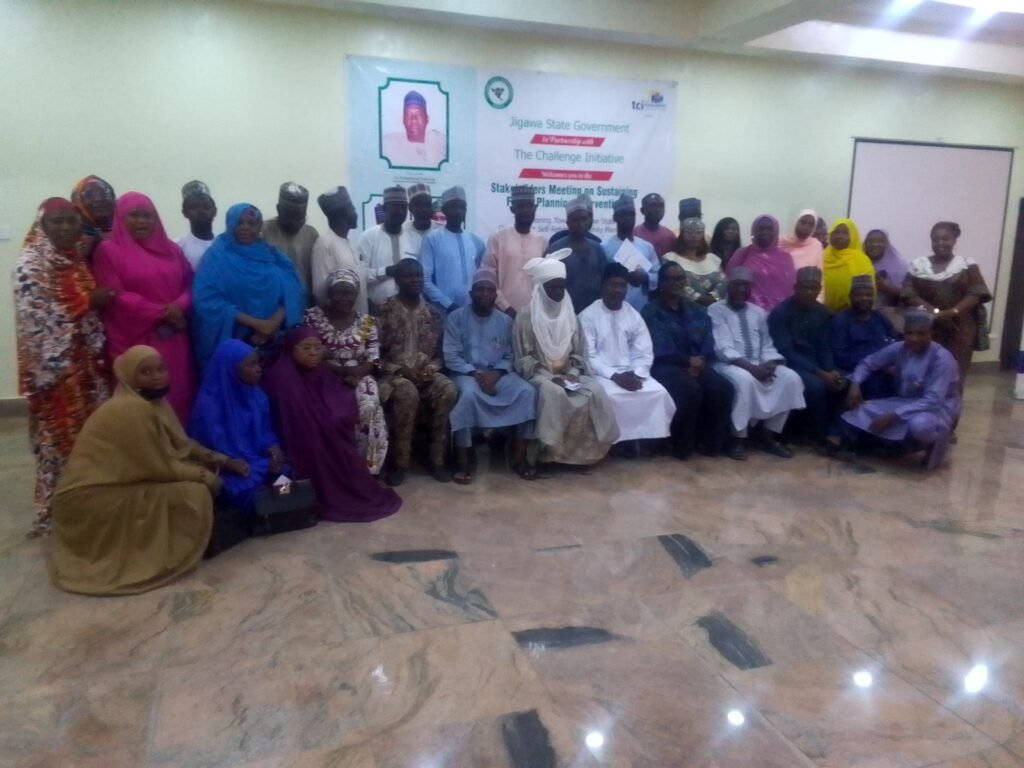Muhammad Alabira Nabordo
The Jigawa State Government has allocated N80 million for the procurement of family planning commodities to ensure their availability and sustainable supply in public health facilities across the state.
This was stated by the state commissioner of Health, Dr Abdullah Kainuwa during a transitional stakeholders and The Challenge Initiative (TCI) meeting held recently at Hailtel Hotel Dutse, Jigawa State capital.
The meeting was to ensure means of sustaining family planning interventions by the state government after the TCI wind up it three year partnership program.
Kainu who was represented by Dr Abdulkari Yakuba, Director Jigawa State Medical Services said family planning (child spacing) is a key component of the state’s reproductive healthcare strategy to reduce the high rate of maternal and child mortality.
Also, Dr Shehu Sambo, the Executive Secretary, Jigawa State Primary Healthcare Development Agency, criticized the limited $45 million budget allocation for family planning across Nigeria, calling it grossly inadequate for the country’s population size.
He further urged the Federal Ministry of Health and the World Health Organization (WHO) to break the monopoly in the supply chain of family planning commodities in Nigeria, arguing that centralized control and bottlenecks contribute to stockouts and rising maternal mortality.
Dr. Sambo commended the Jigawa State Government’s commitment to sustaining family planning initiatives and revealed that a work plan and budget memo had already been prepared for executive approval.
Meanwhile, Dr. Taiwo Johnson, Country Director of The Challenge Initiative (TCI), said the meeting aimed at ensuring a smooth transition and ownership of TCI interventions as the program nears its end in May 2025.
“The Challenge Initiative (TCI) worked in 13 of Jigawa’s 27 local government areas, reaching 9,861 postpartum family planning clients and conducting various community engagement activities,” she explained.
Dr. Johnson therefore ppl commended the state’s readiness to own the program, urging continued collaboration among stakeholders to address maternal health and family planning needs.



